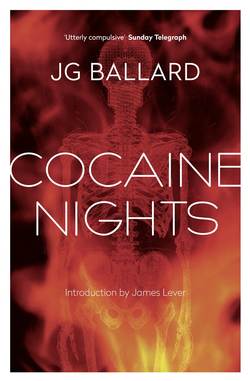Читать книгу Cocaine Nights - J. G. Ballard, John Lanchester, Robert MacFarlane - Страница 11
6 Fraternal Refusals
ОглавлениеTHE RETIREMENT PUEBLOS lay by the motorway, embalmed in a dream of the sun from which they would never awake. As always, when I drove along the coast to Marbella, I seemed to be moving through a zone that was fully accessible only to a neuroscientist, and scarcely at all to a travel writer. The white façades of the villas and apartment houses were like blocks of time that had crystallized beside the road. Here on the Costa del Sol nothing would ever happen again, and the people of the pueblos were already the ghosts of themselves.
This glacier-like slowness had affected my attempts to free Frank from Zarzuella jail. Three days after Bibi Jansen’s funeral I left the Los Monteros Hotel, carrying a suitcase filled with fresh clothes for Frank’s court appearance in Marbella that morning. I had packed the case in his apartment at the Club Nautico after a careful search through his wardrobe. There were striped shirts, dark shoes and a formal suit, but as they lay on the bed they resembled the elements of a costume that Frank had decided to discard. I hunted the drawers and tie-rack, unable to make up my mind. The real and far more elusive Frank seemed to have turned his back on the apartment and its dusty past.
At the last moment I threw in some pens and a block of writing paper – the latter suggested by Señor Danvila in the vain hope of persuading Frank to withdraw his confession. Frank would be brought from Malaga to attend the hearing in the magistrates’ court, a formal identification of the five victims by Inspector Cabrera and the autopsy pathologists. Afterwards, Señor Danvila told me, I would be able to speak to Frank.
As I parked in a narrow street behind the courthouse I weighed what I would say to him. More than a week of amateur sleuthing had yielded nothing. Naively, I had assumed that the unanimous belief in Frank’s innocence held by his friends and colleagues would somehow force out the truth, but in fact that unanimity had only wrapped another layer of mystery around the Hollinger murders. Far from springing the lock of Frank’s prison cell it had given the key another turn.
Nevertheless, five people had been killed, by someone almost certainly still walking the streets of Estrella de Mar, still eating sushi and reading Le Monde, still singing in a church choir or modelling clay at a sculpture class.
As if unaware of this, the hearing at the magistrates’ court unfolded in its interminable way, a Möbius strip of arcane procedures that unwound, inverted themselves and returned to their departure points. Lawyers and journalists each embrace a rival physics where motion and inertia reverse themselves. I sat behind Señor Danvila, only a few yards from Frank and his translator, as the pathologists testified, stood down and testified again, body by body, death by death.
Eager to talk to Frank, I was surprised by how little he had changed. I expected him to be thin and drained by the grey hours of sitting alone in his cell, forehead harrowed by the stress of maintaining his absurd bluff. He was paler, as the sunlight of Estrella de Mar faded from his face, but he seemed composed and at ease with himself, offering me a ready smile and a handshake quickly cut off by his police escort. He took no part in the proceedings, but listened intently to his translator, emphasizing for the magistrate’s benefit his central role in the events described.
When he left the court he gave me a wave of encouragement as if I were about to follow him into the headmaster’s study. I waited on a hard seat in the public corridor, deciding to avoid a direct confrontation. Bobby Crawford had been right to say that the initiative lay with Frank, and by sticking to pleasantries I might force him to show his hand.
